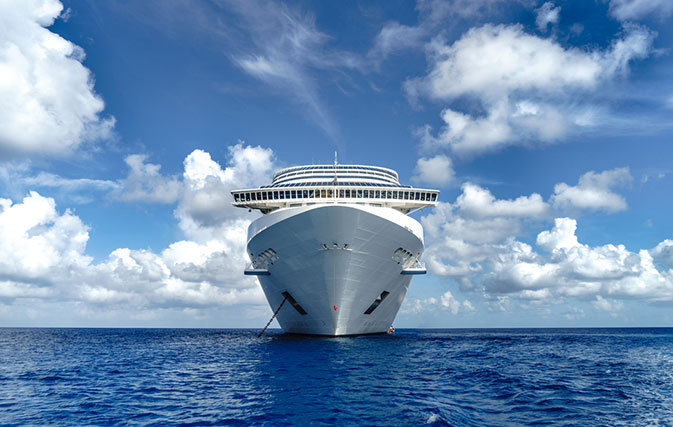MIAMI — By “relentlessly focusing on prevention and other measures” – including the testing of guests and crew members – public health risks associated with the pandemic can be mitigated in a cruise ship environment, according to new recommendations submitted by the Healthy Sail Panel to the U.S. Centers for Disease Control and Prevention (CDC).
The panel, formed earlier this summer by the Royal Caribbean Group and Norwegian Cruise Line Holdings, was tasked with finding best-practice COVID-19 health and safety protocols for the cruise industry in the wake of the pandemic.
The CDC’s No Sail Order is set to expire Sept. 30, however the order has already been extended once, and it could be extended again. Meanwhile CLIA’s ocean-going cruise line members have voluntarily extended their pause in operations until Oct. 31.
The Healthy Sail Panel’s 65-plus-page report includes 74 detailed best practices to protect the public health and safety of guests, crew and the communities where cruise ships call.
The recommendations fall under five main categories:
- Testing, screening and exposure reduction;
- Sanitation and ventilation;
- Response, and contingency planning execution;
- Destination & excursion planning; and
- Mitigating risks for crew members
“The Healthy Sail Panel’s recommendations are robust and comprehensive, and they reflect the intense focus the panelists brought to their work,” said Frank Del Rio, president and CEO of Norwegian Cruise Line Holdings Ltd. “We know that both authorities around the globe and consumers expect cruise lines to provide the safest, healthiest vacations we can, and this work demonstrates our commitment to doing just that.”
The panel is chaired by Governor Mike Leavitt, former U.S. Secretary of Health and Human Services, and Dr. Scott Gottlieb, former commissioner of the U.S. Food and Drug Administration.
The panel’s report notes: “Risk can never be fully eliminated, but with appropriate measures in place, it can be substantially reduced, and many layers of risk reduction are needed since each alone is insufficient.”
The report also acknowledges that “despite all the measures put in place, SARS-CoV-2 infections may still occur on cruise ships. If they do, cruise operators’ goals should be to (1) minimize risk of transmission among individuals and prevent a wide-scale outbreak, (2) provide appropriate care on board for those infected, and (3) arrange in advance for appropriate transfers of impacted guests or crew.”
Richard D. Fain, Chairman and CEO of Royal Caribbean Group, and Del Rio said each company will use the panel’s recommendations to inform the development of new, detailed operating protocols, which will be submitted to the CDC and other authorities around the globe for review and approval.
Actionable measures include:
- Taking aggressive measures to prevent SARS-CoV-2 from entering a ship through screening and testing of both crew and guests prior to embarkation
- PPE usage and capacity restrictions
- Reducing transmission via air management strategies and enhanced sanitation practices
- Implementing detailed plans to address positive infection on board, including contingencies for onboard treatment, isolation and rapid evacuation and repatriation
- Closely controlling shore excursions
- Enhanced protection for crew members
“We understand our responsibility to act aggressively to protect the health and safety of our guests and crew, as well as the communities where we sail, and we asked the panel to help us learn how to best live up to that responsibility,” said Fain. “We were inspired by the depth of the panel’s work and their determination to help us establish the strongest protocols in the travel industry.”
The full Healthy Sail Panel report can be found here.

